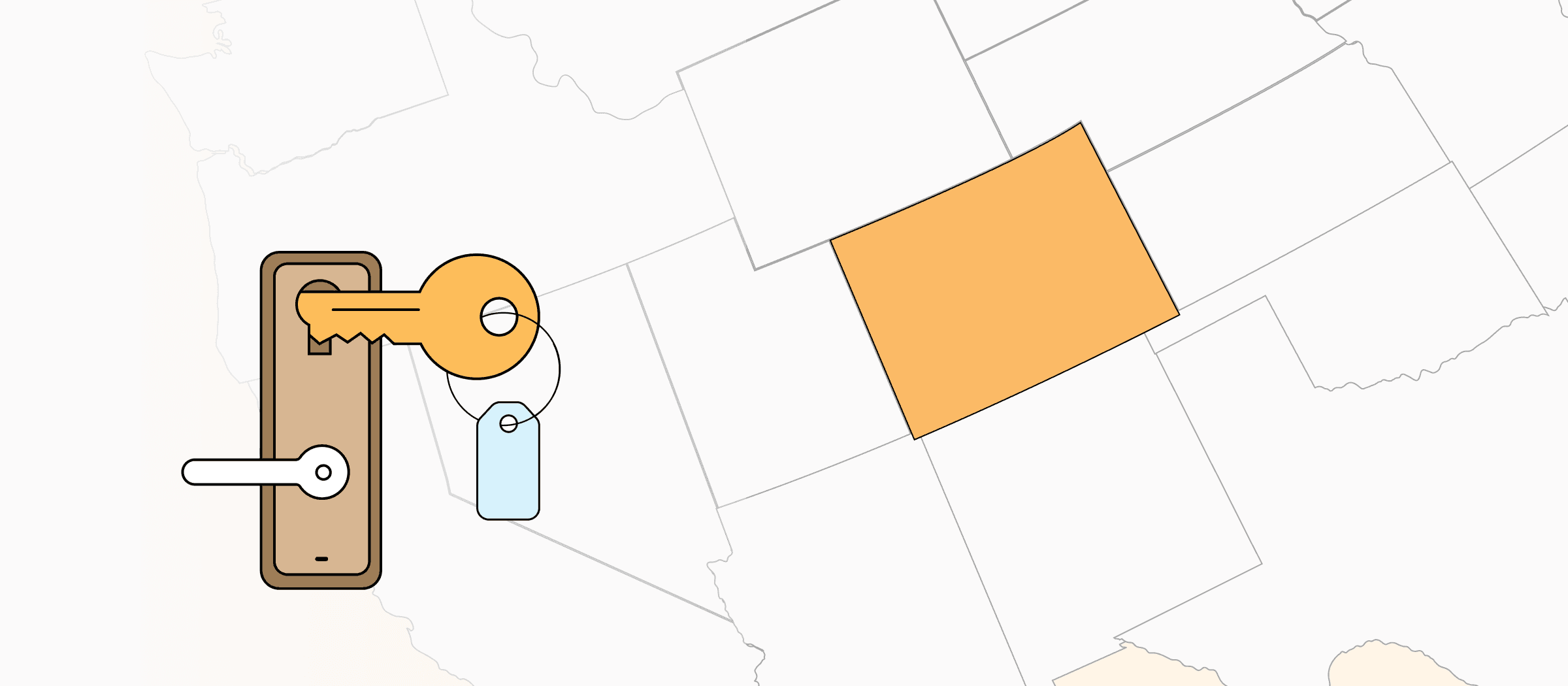
Colorado landlords have the right to enter a rental property for any reason that doesn’t interfere with the renter’s quiet enjoyment, unless the lease says otherwise. This means a landlord can enter for maintenance, inspections, property showings, and emergencies, among other reasonable purposes. [1]
Colorado landlords don’t need permission to legally enter a rental property unless the lease says otherwise. However, the renter has a basic right to physical possession of the property. If the landlord enters despite a tenant’s refusal, this is an interference with possession that could support claims like constructive eviction. [2]
Colorado landlords can legally enter a rental property without the tenant present. [1]
Colorado landlords can show an occupied house. The renter can’t unreasonably refuse. [1]
Colorado landlords have no specific limit on how they can enter for inspections. The landlord can’t enter so often that it interferes with the renter’s quiet enjoyment of the property, but what’s reasonable gets decided case by case. [1]
Colorado landlords have no general requirement to provide a particular amount of notice. However, the law requires 48 hours advance notice for certain things like bedbug inspection and treatment, so a landlord providing less notice risks liability for interference with the tenant’s quiet enjoyment of the premises. [1] [2] [3]
Colorado landlords generally have no duty to give advance notice before entering, as long as this doesn’t interfere with the tenant’s quiet enjoyment of the premises. There are specific exceptions: for example, bedbug inspection and treatment requires advance notice. [1] [2] [3]
Colorado landlords can give written notice about an intention to enter. The law specifically allows electronic notice for bedbug issues, so this is also acceptable. Verbal notice isn’t generally prohibited, but there are legal exceptions (e.g. certain pest treatments), so written notice is always preferable. [3] [4]
Colorado tenants can refuse the landlord’s entry if it’s not for a reasonable cause or done in a reasonable manner. However, a landlord is legally permitted to retaliate in certain ways if refused entry (like raising rent), so tenants are not free to refuse entry at will. [5]
Colorado landlords can seek a court order to force access or deliver a notice to comply (usually 10-day), when the tenant illegally refuses entry. The landlord can then cancel the rental agreement if refusal continues. The landlord can also sue for monetary damages if the refusal caused unnecessary costs. [6]
Colorado tenants aren’t specifically required to get permission before a lock change. However, the landlord still has a right of access for reasonable purposes like maintenance, so tenants should ensure the landlord has a copy of current keys. [1]
If a Colorado landlord enters illegally, a tenant can take one of the following actions: [1] [2]
There is no Colorado statute or case law specifically defining a landlord’s entry rights. At Colorado common law, this means the landlord has a general right to enter except for conduct that breaches the tenant’s implied covenant for quiet enjoyment. “[A] lease contains, of necessity, an implied covenant for the quiet enjoyment of the leased premises.”
Constructive eviction terminates a lease when a disturbance interferes so substantially with a tenancy that the tenant no longer has possession of the premises for their intended use. It’s “constructive” because it doesn’t require the landlord to physically dispossess the tenant (which is actual eviction). See Eskanos v. Irwin, 637 P.2d 403, 405 (Colo. App. 1981) (“[A]cts of a landlord which actually deprive the lessee of the enjoyment of the premises, albeit without an intent to evict, can be treated as a constructive eviction.”). See also Isbill Associates v. Denver, 666 P.2d 1117, 1120 (Colo. App. 1983)
“If a landlord, qualified inspector, or pest control agent must enter a dwelling unit for the purpose of conducting an inspection for, or treating the presence of, bed bugs, the landlord shall provide the tenant reasonable written or electronic notice of such fact at least forty-eight hours before the landlord, qualified inspector, or pest control agent attempts to enter the dwelling unit; except that a rental agreement may provide for a different minimum time for the notice. A tenant who receives such notice shall not unreasonably deny the landlord, qualified inspector, or pest control agent access to the dwelling unit.”
See, e.g., Colo. Rev. Stat. § 38-12-507(1)(c)(i) (2022) (“The tenant may assert, as an affirmative defense, an alleged breach of the warranty of habitability, provided that the landlord or any agent acting on behalf of the landlord has previously received written or electronic notice of an alleged breach of the warranty of habitability.”)
The anti-retaliation statute Colo. Rev. Stat. § 38-12-509 (2022) protects only maintenance complaints and tenant organization activity. Thus landlords are permitted to retaliate against things like refused entry using any means legally in their power.
Note that some small-scale landlords can deliver a 5-day notice instead of a 10-day, if expressly stated in the rental agreement. “[Eviction is allowed when] ten days’ notice in writing has been duly served upon the tenant or lessee holding over… [except that] for an exempt residential agreement, five days’ notice is required pursuant to this section… ‘Exempt residential agreement’ means a residential agreement leasing a single family home by a landlord who owns five or fewer single family rental homes and who provides notice in the agreement that a ten-day notice period required pursuant to this section does not apply to the tenancy entered into.”